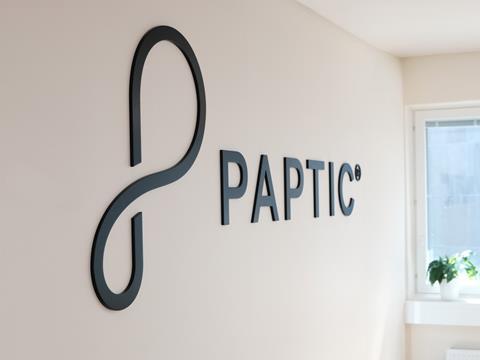
By the end of 2023, Paptic closed €27.5 million in growth financing, including investments from the UB Forest Industry Green Growth Fund (UB FIGG), Emerald Technology Ventures, SIG InnoVentures, and EIC Fund towards the end of the year.
Upon the first closing of the two-part growth financing, Paptic had raised a total of €23 million. The second round was led by UB Figg and, once it had been closed, a further €4.5 million had been raised.
Paptic’s wood fibre-based materials are thought to be both resource-efficient and recyclable at scale in existing recycling streams like paper and cardboard. Said to comply with the EU’s Packaging and Packaging Waste Regulation, the materials are designed to hold up in the future of the packaging industry.
With the estimated size of the international flexible packaging market reaching €200 billion annually and 70% of flexible materials currently used being plastics, Paptic hopes to implement its materials in light of forecasts suggesting that economic and population growth will continue to increase the amount of packaging produced.
The company plans to strengthen its presence in Europe and accelerate its growth in Asia in the coming years. It anticipates that its contract manufacturing business model will allow it to rapidly increase its capacity, while the new financing is set to accelerate the industrial scale-up of its foam-based manufacturing technology.
“We are very pleased to have closed this investment in Paptic,” says David Walker, senior partner at UB FIGG. “We have been closely monitoring the company’s progress and the success the Paptic team has had in new product development and work with leading global brands.
“This all forms a solid base for on-going success and this additional financing will help accelerate its growth.”
“Paptic is working at the cutting-edge of packaging, taking a novel approach to solving the huge and growing problems inherent in the current industry,” says Emerald Partner Fredric Petit. “Our investment is a mark of confidence in Paptic’s ability to play a vital role in helping to reduce waste and improve consumer value in packaging.”
“The EIC Fund has established itself as a strong force in EU deep-tech investments,” continues EIC Fund Board chair Svetoslava Georgieva. “This unique form of financing via EIC - combining grants and equity – is proving itself highly attractive to Europe’s most promising start-ups.
“We hope that our investment will help Paptic to accomplish their objective of replacing plastics and other conventional materials in packaging, which is also one of the EU Green Deal’s objectives.”
Tuomas Mustonen, CEO and co-founder of Paptic, concludes: “Now that the financial round is officially closed, we are excited to focus on the next stages of our future growth. We have the ambitious goal to reach EUR 100 million in revenue in 2026.
“The new capital raised during the past year puts us in a strong position to invest in our people, sales channels, and product development. Our growth is based on our ability to competitively serve international brand owners who are seeking sustainable alternatives to replace plastics in their packaging.
“Our goal has been to broaden our shareholder base with international investors, and this second closing accomplishes that objective. I am very satisfied with the result.”
The news comes after Dorsal adopted Paptic’s material to package its pillows in a bid to phase out fossil-based plastics in its operations.
In other funding-related developments, Xampla and 2M Group of Companies received Innovate UK’s Smart Grant in order to scale up the production of its bio-based, biodegradable Morro materials; and Pickler has raised €500,000 in a funding round and aims to help packaging companies calculate, share, and reduce their emissions effectively.
If you liked this article, you might also enjoy:
The Lidl approach to packaging sustainability
How did Brazil achieve its 100% aluminium can recycling rate – and can it be replicated in the EU?
Experts have their say on the EU’s Packaging and Packaging Waste Directive revisions
A deep dive into the most important packaging sustainability trends and solutions














No comments yet